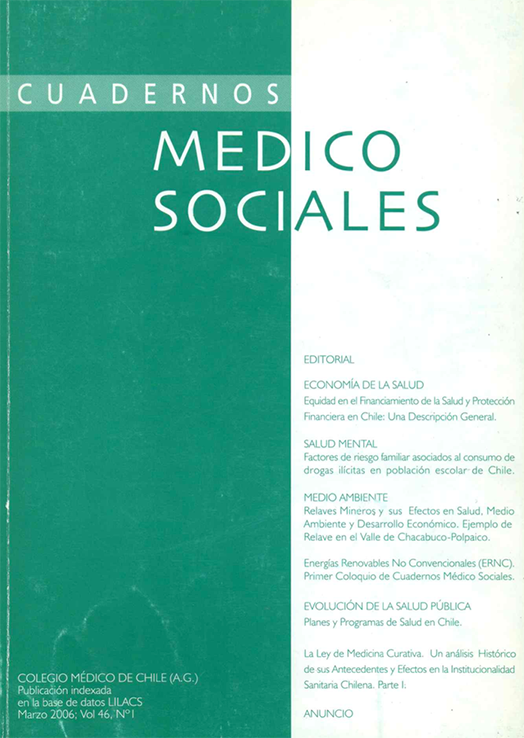Family risk factors for illicit drug consumption by school children in Chile
Keywords:
Consumo de drogas ilícitas, salud escolar, factores familiares, estrategias de prevenciónAbstract
Objective: To identify those family risk or protection factors that have a high dgree of association with the consumption of illegal drugs by Chilean school children. Methods: The study is based on information obtained from the Fourth National Drugs Survey carried out by the National Council por Psychotropic Drugs Control (CONACE) in 2001. A probabilistic sample was obtained with a two-stages procedure and an stratification by school grades and type of ownership of the schools. A self-administered questinnaire, previously validated, was applied 50 58 7222 schoolchildren ob both sexes living in the 86 most poulated urban communes of Chile. The outcome variable was : the life consumption of any illicit drug. The independent variables were: family composition; whether a conflict existed between the parents or between parents and adolescents; joint activities and communication; parental educational style; and parental supervision. A reliability analysis was done ( Cronbach Alpha Coefficient) and logistic regression models were utilized. Results: Marihuana is the drug with greater life prevalence of consumption: 23,4%. It is followed by cocaine: 5,2%.. Family conflict is the most potent risk factor for consumption of all the drugs studied. Parental supervision is the most powerful protective factor. Conclusions: Family factors are important in regard to illegal drugs consumption by Chilean school children. Family strategies should be incorporated in drug consumtion prevention strategies.
Downloads
Downloads
Published
How to Cite
Issue
Section
License

This work is licensed under a Creative Commons Attribution-NonCommercial-ShareAlike 4.0 International License.


